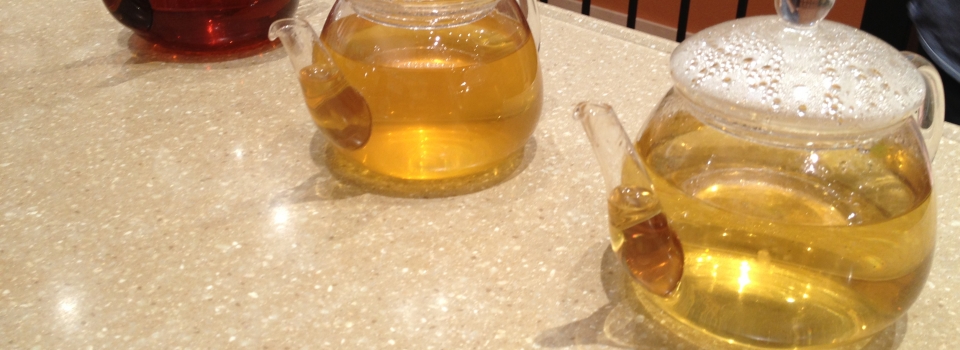
This week (Oct. 6-12) marks Mental Illness Awareness Week and I was thrilled to take part in a unique event
hosted by the global non-profit organization, NØSTIGMAS. I learned about NØSTIGMAS shortly after we launched this blog and was really moved by their efforts to raise awareness and erase the stigmas of suicide and mental illness. They collect and share stories of hope and inspiration to help educate the general public about mental health issues and those affected by mental illness. They provide access to no-cost resources like peer-to-peer connections, support systems and education to promote mental wellness and prevent suicide.
On Wednesday evening, NØSTIGMAS held a really interesting “Tea & Wellness Workshop” at Adagio Teas in downtown Chicago. I was immediately intrigued for a few reasons. For one, I have opened up to traditional and alternative forms of healing and coping since my dad died. From regular counseling to support groups and meditation to acupuncture, I’ve taken advantage of the benefits each of these channels offer me in my personal growth since the loss. Additionally, I know that tea offers a variety of healing properties, so I have actually
started to buy and drink more tea. I’m embarrassed to say I have a drawer full of no less than a dozen types of tea at work. I keep buying in hopes that the right flavor might help me avoid an afternoon snack attack or that it will calm me in moments of stress. And lastly, I was excited to meet the people behind NØSTIGMAS because I have made it a priority to advocate for support for those who have lost a loved one to suicide and help eliminate the associated stigmas.
At first thought, tea is just another beverage, right? It’s actually the most-consumed beverage in the world. This is just one of the many things I learned from Taylor, our tea specialist. However, trailing behind the rest of the globe, the U.S. doesn’t really have a tea culture. We’re more interested in the immediate gratification of coffee, soda, energy drinks or alcohol that aligns with our fast-paced society. One of the major reasons tea has permeated other regions – like Europe and Asia, is because people trust in its healing properties. Ok, so, what does this have to do with anyone reading this post? I think that everyone could benefit from carving out time in their day to “treat” or be kind to themselves – especially those who have experienced something as traumatic as a suicide. Tea might not be “it” for you. But, it could potentially deliver some of the very things we need to heal – a means to relax and de-stress. It’s not just smoke and mirrors. Tea contains the amino acid, Theanine, which has been found to treat anxiety and elevated blood pressure. Taking time to sip a cup of tea can help to control the release of the stress hormone cortisol in the brain to encourage a reduction in our mental and physical stress. Dr. Oz has shared his favorite teas for relaxation.
I have mentioned before that my dad’s suicide led to my own feelings of anxiety and depression, which I’ve worked really hard to navigate. Tea won’t be the be-all, end-all of my healing, but it’s just one of the many “tools” I am using in my life after losing him. Until recently, I pictured tea as something that sat in a wrapper in a box on my office kitchen shelf. But, as I got out and started to explore real tea shops, like Adagio, Teavana or David’s, I was taken aback at the multitude of flavors and varieties. From low-to-highly caffeinated and with flavors like birthday cake, apple cinnamon or vanilla, you might be surprised to learn that your taste buds (and mind) are more open to tea than you once thought. I encourage you to visit a store like this sometime soon to do your own taste tests!
But, more importantly, as we take time to understand more about mental wellness and ways we can honor our loved ones and support ourselves, I hope you will also continue to explore those interests that make YOU feel really good. We are all entitled to that in our grief journeys.
If interested, you can join NØSTIGMAS in their efforts by sharing your story. Learn more about them and how to be involved by visiting http://NoStigmas.org/ or writing to info@nostigmas.org.
The next “big” day coming up is International Survivors of Suicide Day, November 23, 2013.
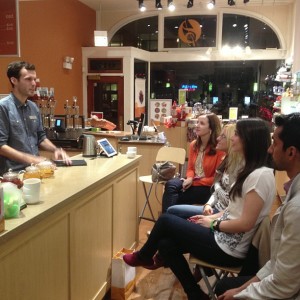
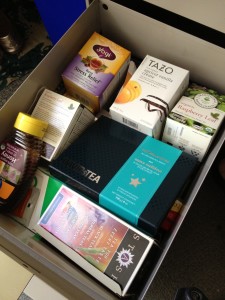
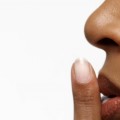
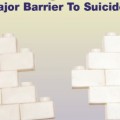
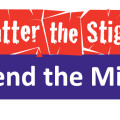

What a great post! It was a pleasure having you at the workshop. Looking forward to erasing stigmas together. 🙂